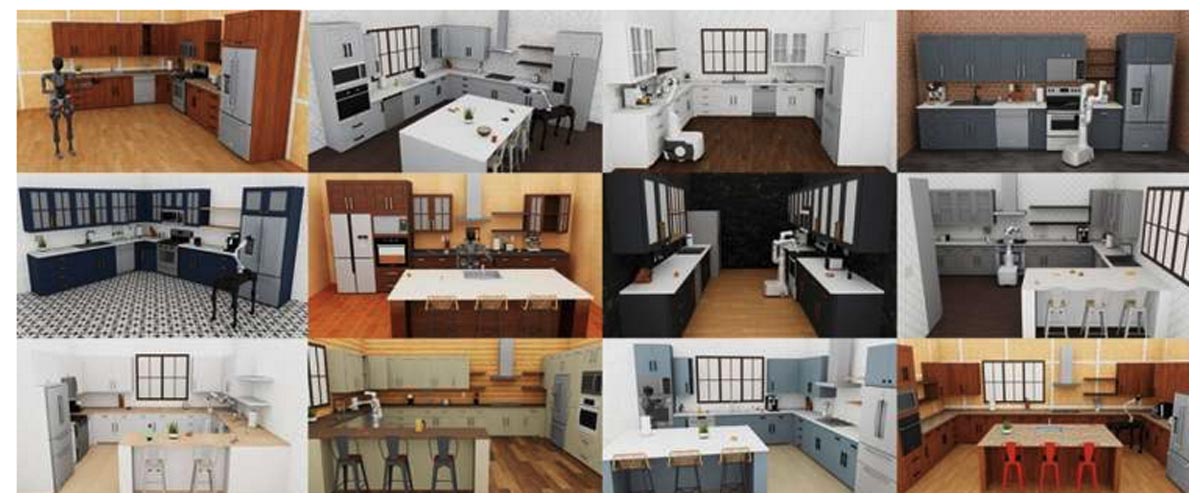Dear colleagues and friends,
A dear colleague shares with us today this article written by Ingrid Fadelli, released on June 15, 2024 by Tech Xplore and translated by us for this space. Let's see what it's all about...
The performance of artificial intelligence (AI) tools, including large computational models for natural language processing (NLP) and computer vision algorithms, has improved rapidly in recent decades. One reason for this is that the data sets for training these algorithms have grown exponentially, collecting hundreds of thousands of images and texts, often obtained directly from the Internet.

Training data for robot planning and control algorithms, on the other hand, is still much less abundant, in part because acquiring them is not that simple. Therefore, some computer scientists have been trying to create larger platforms and data sets that could be used to train computational models for a wide range of robotic applications.
In a recent article, prepublished on the arXiv server and which will be presented at the conference Robotics: Science and Systems 2024, researchers from the University of Texas at Austin and NVIDIA Research they presented one of these platforms, called RoboHouse.
RoboCasa is a large scale simulation framework that can be used to train generalist robots to complete various tasks in everyday environments.
“Recent progress in AI has been largely driven by the training of large models in massive data sources,”
Yuke Zhu, lead author of the article, told Tech Xplore.

“Inspired by these advances, we seek to develop basic models for generally capable robots that can perform a variety of everyday tasks. RoboCasa is designed to provide the high-quality simulation data needed to train such basic robotics models.”
The main objective of recent work by Zhu, Soroush Nasiriany, Abhiram Maddukuri, Lance Zhang, Adeet Parikh, Aaron Lo, Abhishek Joshi and Ajay Mandlekar was to develop a new open-source simulation platform that would facilitate the training of robotic algorithms.

Their efforts eventually led to the development of RoboCasa, which is an extension of RoboSuite, a simulation framework they introduced a few years ago. RoboSuite serves as the simulation infrastructure that the team used to create RoboCasa's simulated environments.
“We use generative AI tools to create diverse objects, scenes and tasks,” Zhu explained. “These AI tools significantly improved the diversity and realism of the simulated world. In addition, RoboCasa supports several robot hardware platforms and provides large data sets with more than 100,000 trajectories for model training.”
The RoboCasa platform includes thousands of 3D scenes containing more than 150 different types of everyday objects and dozens of furniture and appliances. RoboCasa presents highly realistic simulations, which were enriched with generative artificial intelligence tools.
Zhu and his colleagues designed 100 tasks in which robotic algorithms can be trained and compiled high-quality human demonstrations for these tasks. Its platform also includes methods for generating effective trajectories and movements that would allow robots to complete.
“Two key findings excited me the most,” Zhu said. “First, we demonstrated a scaling trend: as we increased the size of training data sets (generated by machines), model performance grew steadily. Second, by combining the simulation data with real-world data, we found that the augmented dataset improved the robot's performance on real-world tasks.”

